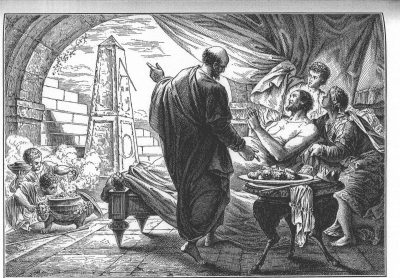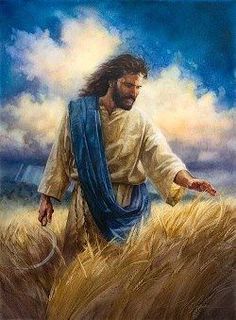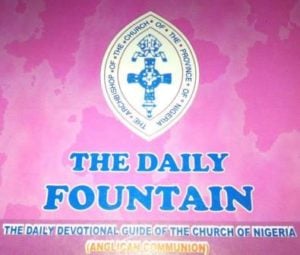Liturgical Readings for : Friday, 19th July, 2024
Friday of the Fifteenth Week in Ordinary Time, Year 2
FIRST READING
A reading from the book of the Prophet Isaiah 38:1-6. 21-22.7-8
I have heard your prayer and seen your tears.
Hezekiah fell ill and was at the point of death. The prophet Isaiah son of Amoz came and said to him,
‘The Lord says this, “Put your affairs in order, for you are going to die, you will not live.”‘
Hezekiah turned his face to the wall and addressed this prayer to the Lord,
‘Ah, Lord, remember, I beg you, how I have behaved faithfully and with sincerity of heart in your presence
and done what is right in your eyes.‘
And Hezekiah shed many tears.

Then the word of the Lord came to Isaiah,
‘Go and say to Hezekiah,
“The Lord, the God of David your ancestor, says this:
I have heard your prayer and seen your tears. I will cure you:
in three days’ time you shall go up to the Temple of the Lord. I will add fifteen years to your life.
I will save you from the hands of the king of Assyria, I will protect this city.”‘
‘Bring a fig poultice,’ Isaiah said ‘apply it to the ulcer and he will recover.‘
Hezekiah said, ‘What is the sign to tell me that I shall be going up to the Temple of the Lord?’‘
‘Here’ Isaiah replied ‘is the sign from the Lord that he will do what he has said.
Look, I shall make the shadow cast by the declining sun go back ten steps on the steps of Ahaz.’
And the sun went back the ten steps by which it had declined.
The Word of the Lord Thanks be to God..
Responsorial Psalm Is 38
Response You have held back my life, O Lord, from the pit of doom.
1. I said, ‘So I must go away, my life half spent,
assigned to the world below for the rest of my years.’ Response
2. I said, ‘No more shall I see the Lord in the land of the living,
no more shall I look upon men within this world. Response
3. ‘My home is pulled up and removed like a shepherd’s tent.
Like a weaver you have rolled up my life, you cut it from the loom. Response
4. ‘For you, Lord, my heart will live, you gave me back my spirit;
you cured me, kept me alive, changed my sickness into health.” Response
Gospel Acclamation Ps 26:11
Alleluia, alleluia!
Instruct me, in your way; on an even path lead me.
Alleluia!
Or Jn 10: 27
Alleluia, alleluia!
The sheep that belong to me listen to my voice, says the lord, I know them and they follow me.
Alleluia
GOSPEL
A reading from the holy Gospel according to Matthew 12: 1-8
The Son of Man is master of the sabbath.

Jesus took a walk one sabbath day through the cornfields. His disciples were hungry and began to pick ears of corn and eat them. The Pharisees noticed it and said to him,
‘Look, your disciples are doing something that is forbidden on the sabbath.’
But he said to them,
‘Have you not read what David did when he and his followers were hungry – how he went into the house of God and how they ate the loaves of offering which neither he nor his followers were allowed to eat, but which were for the priests alone?
Or again, have you not read in the Law that on the sabbath day the Temple priests break the sabbath without being blamed for it?
Now here, I tell you, is something greater than the Temple.
And if you had understood the meaning of the words: What I want is mercy, not sacrifice you would not have condemned the blameless. For the Son of Man is master of the sabbath.’
The Gospel of the Lord Praise to you, Lord Jesus Christ.
********************
Gospel Reflection Friday Fifteenth Week in Ordinary Time Matthew 12:1-8
When Jesus quotes the Jewish Scriptures, it is often because he finds there a message or a word that corresponds to his own message and vision. At the end of today’s gospel reading, he quotes from the prophet Hosea, ‘What I want is mercy, not sacrifice’. For Hosea and for Jesus, what matters more to God than all the sacrifices that were offered in the Temple in Jerusalem was this attitude of mercy. How was mercy understood? In the parable of the good Samaritan, it was mercy that the Samaritan showed to the broken traveller on the roadside. Those who were broken in body and spirit often came up to Jesus with the prayer, ‘Have mercy on me’. When Jesus brought life to the dying, healing to the sick, forgiveness to sinners, loving acceptance to the excluded, he was showing mercy. To show mercy is to recognize the need of others and to respond to it with a generous spirit.
In the beginning of today’s gospel reading, Jesus’ disciples were in need of food; they were hungry. They picked ears of grain from a grain field to satisfy their hunger, which was perfectly legitimate at the time. When the Pharisees noticed this, they judged the disciples, saying that they were doing work on the Sabbath, breaking the Sabbath law of rest. The Pharisees lacked mercy, failing to understand the need of the disciples for food. They were judgemental rather than merciful. Jesus revealed the merciful love of God for all, and he called on us to show something of God’s merciful love to others. As he says, quoting Hosea, this is what God wants. Jesus was closer to God than any human being; he was the Son of God. As a result, he knew better than anyone else what God wants. God wants to find among his people, among us all, a compassionate, understanding and merciful heart.
________________________________
The Scripture Readings are taken from The Jerusalem Bible, published 1966 by Darton, Longman & Todd Ltd.







![#KingdompadiMusicVid: James Akinwumi | Our God [@MinisterjamesOF]](https://www.kingdompadi.com/wp-content/uploads/2025/03/WhatsApp-Image-2025-03-03-at-15.05.04_acb15277-150x150.jpg)




